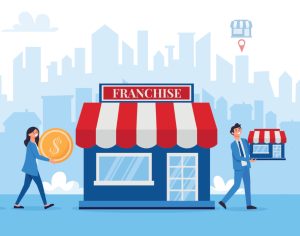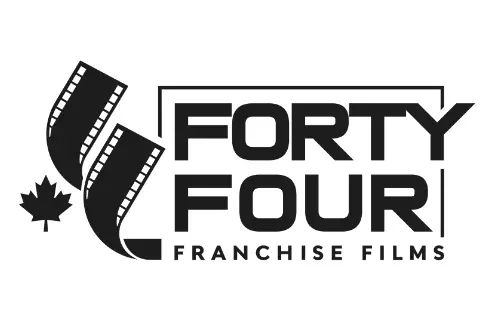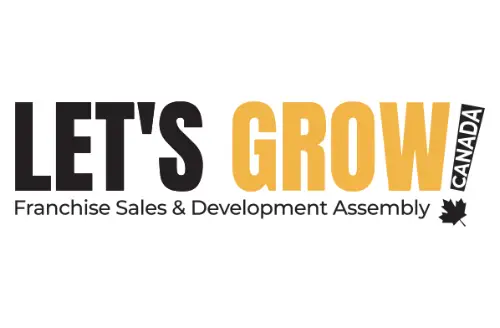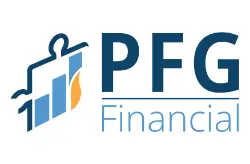The ground is shifting, but franchising holds firm
With a new prime minister in office and headlines dominated by inflation, interest rates, and tariffs, the Canadian economy feels anything but predictable. For many, the instinct is to hunker down—stay employed, keep the steady paycheque, and wait it out.
But the truth is, in times of economic uncertainty, franchising doesn’t falter. In many cases, it thrives.
At the recent Canadian Franchise Association (CFA) National Convention, the CFA President announced that Canada’s franchising sector is projected to grow by 4% in 2025, outpacing all other sectors in the country. This optimistic forecast underscores the resilience and adaptability of the franchising model, even amid economic uncertainties.
While specific CFA reports detailing this 4% growth projection are not publicly available, several industry analyses support the positive outlook for franchising in Canada. For instance, a report by Franchising.com highlights that franchising in Canada is poised for continued growth and evolution in 2025, driven by economic trends, technological advancements, and changing consumer preferences. Franchising.com
Additionally, an article from CanadianSME emphasizes that franchise ownership is increasingly viewed as a secure pathway to entrepreneurship and financial freedom, especially in challenging economic times. The article notes that the franchise industry remains vibrant and dynamic, offering Canadians a pathway to entrepreneurship and financial independence. Canadian SME
These insights align with the CFA President’s statement, suggesting that the franchising sector’s projected 4% growth in 2025 is well-founded, reflecting the industry’s strength and potential in the Canadian economy.
For those weighing their next professional move, franchising offers more than just a business opportunity—it offers structure, resilience, and the ability to take control.
Here’s why franchising remains a winning strategy when the economy wobbles.
Economic volatility tends to shift consumer priorities. Families look for affordable childcare. Parents seek out local tutors. Communities favour independent food and wellness providers over big-box options.
These are precisely the spaces many franchise businesses operate in.
When the job market tightens, some of the most capable professionals begin exploring entrepreneurship. That talent migration becomes fertile ground for franchise growth—especially in categories that solve real, everyday needs.
Franchise systems are built for scalability. With clear operations, brand recognition, and peer support, they can navigate turbulence far better than independent startups.
New leadership often signals a change in direction. From tariffs and trade agreements to shifts in public spending, these changes can spark disruption—but also opportunity.
Franchises that are locally owned, service-based, or community-oriented are often insulated from global shocks. As more Canadians look to spend closer to home, these businesses meet that need. Whether it’s children’s activities, home services, education, or health and wellness, franchise systems rooted in local engagement are well-positioned to grow.
Layoffs. Restructuring. Automation. The security that once came with a steady job is increasingly elusive. Public sector roles are under pressure. Corporate ladders are disappearing. Even industries once thought “untouchable” are evolving fast. Franchising offers a different kind of security: one that’s earned, not inherited. Yes, there’s investment involved—but there’s also ownership, autonomy, and the potential for long-term financial growth. With the right support, franchisees can grow income on their own terms—without waiting for permission or promotion.
Entrepreneurship appeals to many, but starting a business from the ground up is daunting. Franchising bridges that gap. It offers a blueprint—backed by experience. Training, marketing, systems, and support are built in. You enter the business with momentum, not just ideas. And in uncertain times, being part of a network matters. You’re not guessing your way through the market—you’re adapting alongside others, using shared tools and tested strategies.
That sense of structure and community can make all the difference.
Franchising isn’t a quick fix. But it’s a model that builds over time—creating equity, developing leadership skills, and putting you in control of your future.
For many franchisees, the goal isn’t just short-term income—it’s legacy. The ability to grow a business, provide jobs, and build something lasting.
In a few years, the political and economic landscape will shift again. When it does, franchisees who took the leap now will already be established, experienced, and growing.
Final Word: Be Strategic, Not Stagnant. There’s no perfect moment to start a business—but there are pivotal ones. Times of disruption force reflection, and sometimes, redirection. Franchising is not just a system—it’s a path. One that’s built to weather economic shifts, backed by structure, and powered by people who want to move forward, not just hold on.
So if you’re evaluating your next step, don’t ask what feels safe. Ask: What gives me the best chance to grow, adapt, and thrive—no matter what comes next?



























